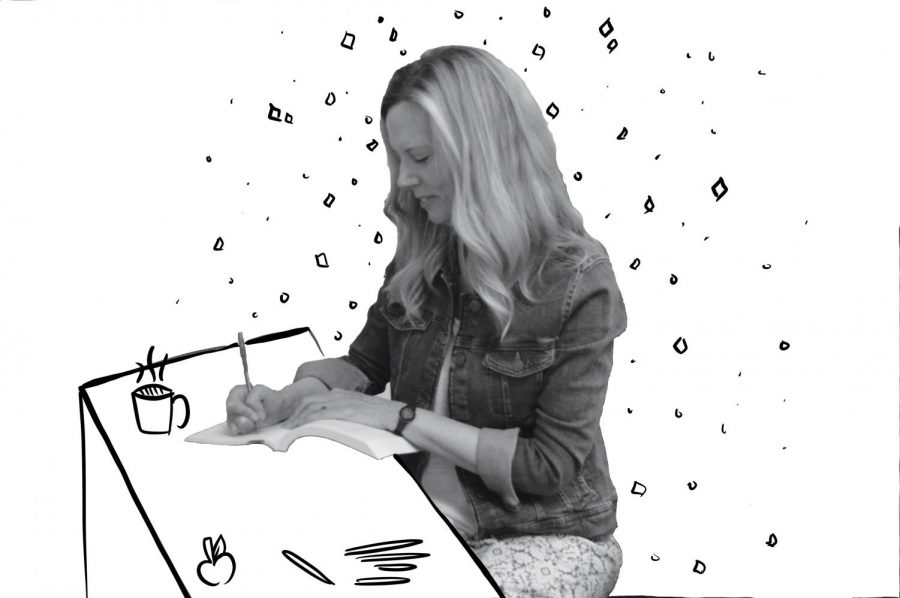English teacher Tarn Wilson shares coping skills, advice on building a wellness toolbox
From journaling to yoga to reading, English teacher Tarn Wilson has accumulated a toolbox full of skills to help her deal with mental health challenges. She has been dealing with Generalized Anxiety Disorder, a condition characterized by excessive and persistent anxiety and worry that interferes with daily life, from a young age. “I know a lot of Gunn students struggle with [this] as well,” she said. “I think I’ve struggled with it for my whole life, but didn’t get a diagnosis until just recently.”
Wilson picked up several strategies to improve her wellness. “I would just write and know that I felt better. I would exercise and know that I felt better. Then, I would sleep and I felt better,” she said. “So that was just sort of learning on my own, I think.”
Going to therapy has also helped Wilson deal with challenges throughout the entirety of her life. Although she initially reached out to a therapist during a crisis situation, she later discovered that therapy helps in all situations. “It’s something that’s good maintenance for your whole life, even when things are going well,” she said.
Wilson also emphasized the importance, for her, of knowing how to say no and take time for herself. Although she now struggles less with saying no to things she doesn’t want to do, she still believes it can be difficult to have to prioritize different things that she enjoys. “The hardest thing is knowing that I can’t do everything that I want to do, I can’t fit it all in, and that I need down- time,” she said.
She has learned to change her approach to situations in order to avoid fueling anxious thoughts, such as by avoiding perfectionism and asking for help when she needs it. “I always felt pretty proud of being self sufficient when I was younger, she said. “As I got older, I realized how important it is to have a team of people that support you and that you support.”
Wilson also pointed out the importance of allowing yourself to feel all emotions, even ones that are uncomfortable. Although positivity is important, repressing negative emotions ultimately creates worse situations. “Embrace your sad feelings and don’t be afraid of them,” Wilson said. “I think being afraid of sad feelings then creates more anxiety. You’re pushing them away, they bubble up, you’re scared of them, it creates more anxiety.” She also focused on the value of self-compassion and being gentle with oneself.
Wilson hopes that students remember that they are not alone and that others are going through similar experiences. “It can feel like it’s only happening to you, that there’s something wrong with you and that you’re broken in some way. But you’re not,” she said. “There are lots of people who have similar struggles and paths.”
Your donation will support the student journalists of Henry M. Gunn High School. Your contribution will allow us to purchase equipment and cover our annual website hosting costs.


